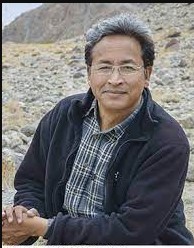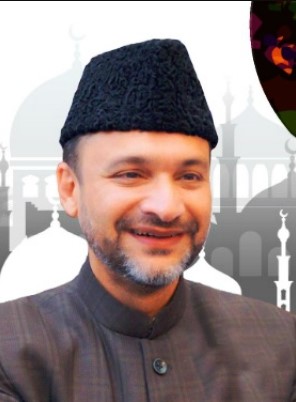Bing Video Creator Launched — Free AI Tool Lets
June 6, 2025

Sonam Wangchuk is an Indian engineer, innovator, and education reformist known for his work in the field of education, sustainable development, and environmental conservation. He gained widespread recognition for his role in inspiring the character of Phunsukh Wangdu, played by Aamir Khan, in the Bollywood movie "3 Idiots." Here are some key points about Sonam Wangchuk:
1. Early Life and Education:
Sonam Wangchuk was born on September 1, 1966, in Uleytokpo, a small village in Ladakh, India. He completed his schooling from the Tibetan Children's Educational Village in Dharamshala, Himachal Pradesh. Later, he pursued a degree in Mechanical Engineering from the National Institute of Technology (NIT), Srinagar.
2. Founding of the Students' Educational and Cultural Movement of Ladakh (SECMOL):
In 1988, Sonam Wangchuk founded SECMOL, an organization aimed at reforming the education system in Ladakh. SECMOL focuses on providing alternative and practical education to the students of the region.
3. Ice Stupas and Water Conservation:
One of Wangchuk's notable innovations is the concept of "Ice Stupas." In Ladakh, water scarcity is a significant issue due to the region's arid climate. To address this problem, he devised a method to create artificial glaciers in the form of cone-shaped ice structures. These Ice Stupas store winter meltwater and release it slowly during spring, providing water for agricultural and other purposes.
4. Alternative Education System:
Sonam Wangchuk strongly advocates for an alternative education system that focuses on practical skills and experiential learning. He believes that the current education system emphasizes rote learning and does not adequately prepare students for real-world challenges. Through SECMOL, he has developed innovative teaching methods and curriculum, including the use of solar energy and hands-on learning.
5. Himalayan Institute of Alternatives (HIAL):
Wangchuk is the founder of the Himalayan Institute of Alternatives (HIAL), which aims to establish a university in Ladakh based on sustainable development principles and alternative education models. The university, still under development, intends to offer courses in areas such as mountain development, ecologically friendly technology, and traditional knowledge systems.
6. Recognition and Awards:
Sonam Wangchuk's work has garnered international acclaim, and he has received several awards for his contributions to education and innovation. Some of the notable awards include the Rolex Awards for Enterprise, the Ramon Magsaysay Award (also known as the Asian Nobel Prize), and the Jamnalal Bajaj Award for Outstanding Contribution in the field of Constructive Work.
Sonam Wangchuk continues to inspire and work towards finding sustainable solutions to environmental and educational challenges, particularly in the Himalayan region. His innovative ideas and commitment to social change have made him a respected figure both in India and globally.

June 6, 2025

June 6, 2025

June 6, 2025

June 6, 2025

June 6, 2025

June 6, 2025

June 6, 2025

June 6, 2025

June 6, 2025

June 6, 2025